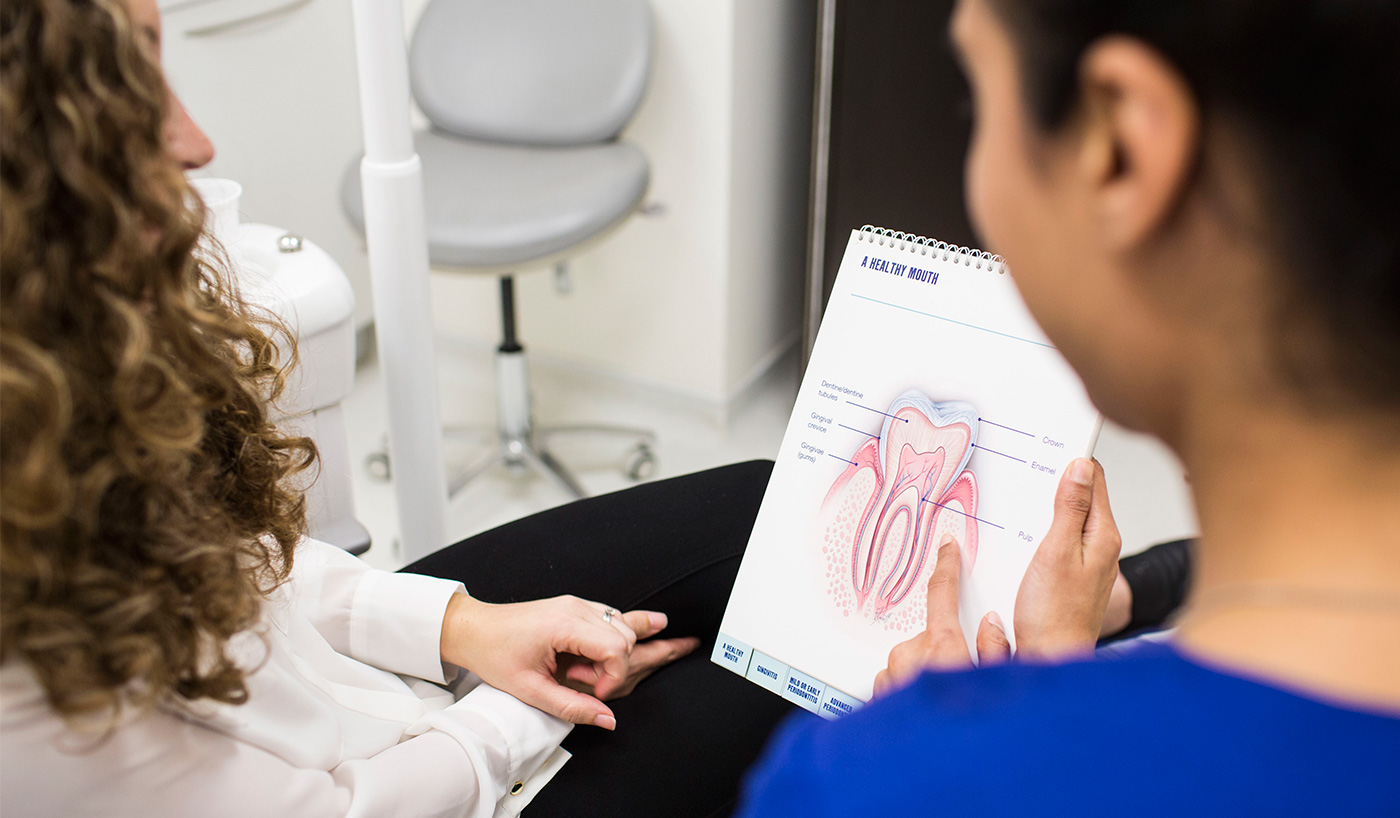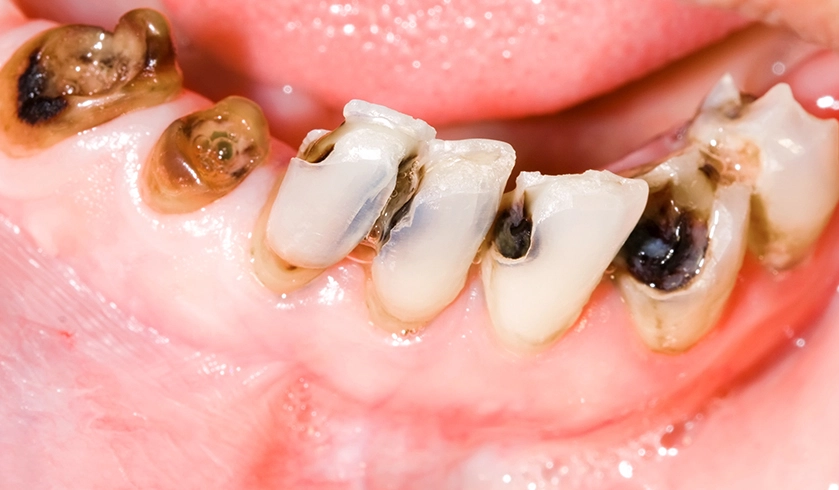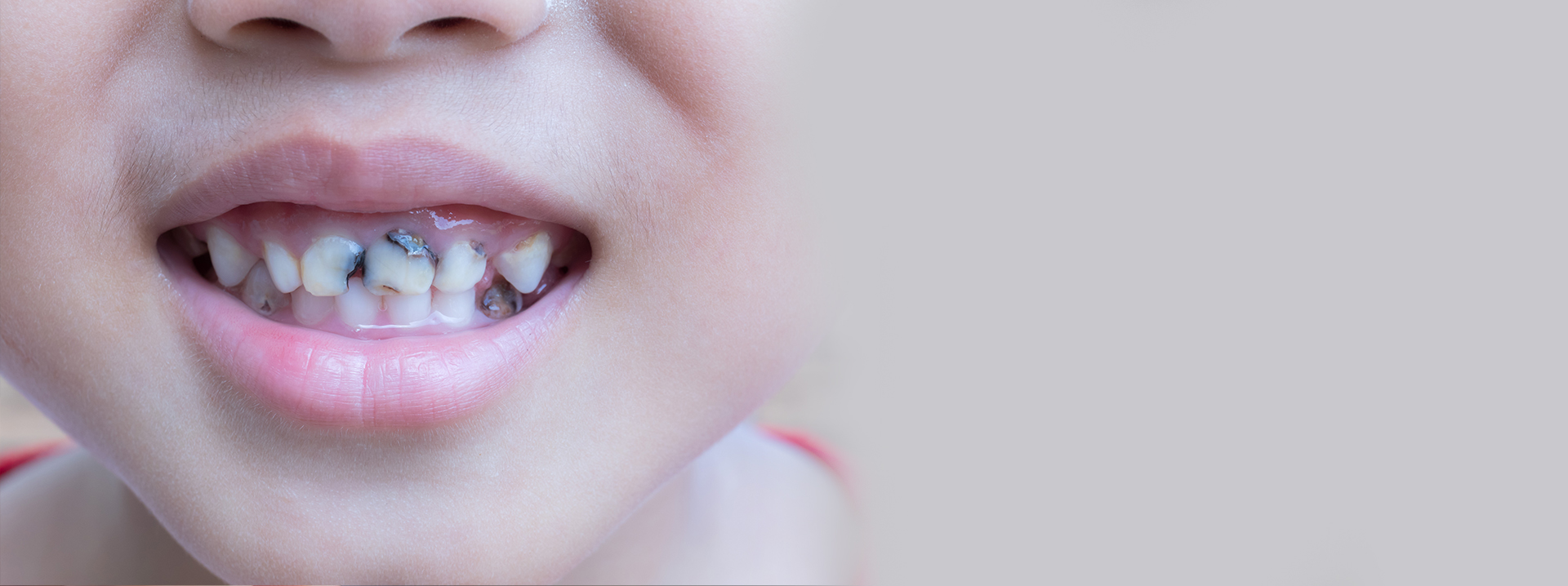Dental decay becomes apparent when tooth wear and plaque cause dental cavities, attracting bacteria which infect and damage teeth. These cavities cause tooth sensitivity and toothache when the inner dentin and dental pulp become exposed to temperature changes and infection. When tooth pain or infection increases, an emergency dentist needs to be contacted to reduce discomfort and treat the source of the dental decay and pain.
A visit to an emergency dentist may be avoided by maintaining good oral hygiene and by attending regular dental appointments. Dentists can evaluate oral health for signs of tooth cavities and decay to prevent infection and spread of tooth decay. Doing so also reduces the risk of toothache, oral pain and discomfort.

Dental decay is identified as a significant health issue in the UK affecting children, adolescents, young people and older adults. The elderly and people with disabilities are at high risk of experiencing dental decay due to mobility or dexterity challenges impacting their ability to clean their teeth properly. Around 55 percent of UK adults experience dental decay and a vast amount of children between the ages of 8 and 15.
Visits to the dentist and professional dental cleanings help individuals receive the dental treatment and advice they need to prevent dental decay and associated oral health conditions.
Causes of Dental Decay
Dental decay arises when food becomes trapped in tooth grooves, cavities and between teeth. In some cases, the food is stuck in difficult to clean areas where regular teeth brushing cannot reach. Plaque can then form around this area of the tooth, attracting bacteria and the possible onset of infection and decay.
Tooth decay wears down tooth enamel, but it may also occur when teeth wear over time, dental damage occurs or from consuming foods high in sugar and acid content. Once the tooth enamel starts to wear away the dentin and dental pulp become exposed and tooth sensitivity may begin.

Sticky plaque build-up solidifies into calculus and tartar which cannot be cleaned away through teeth brushing and flossing. The acid in plaque and tartar starts to erode the tooth. Only professional teeth cleaning and scaling by a dentist or dental hygienist will remove this layer so that teeth are properly cleaned and free of infectious bacteria.
Dentists recommend attending dental check-ups on a six month basis for teeth to be checked and given a professional cleaning. Improper teeth brushing may be a cause of tooth wear and gum recession, so it is important to understand how to clean the teeth properly with correct brushing technique. Tooth decay itself also leads to receding gums and if related issues such as gingivitis or gum inflammation are not treated, they may lead to oral diseases including periodontitis (gum disease), caries and oral cancer.
Dental Decay Treatments
Initially, dentists may treat the toothache while evaluating dental health and checking for cavities. A range of treatments may be used depending on the severity of tooth decay.
Where infection is present within tooth pulp or tooth roots, root canal treatment can remove infection. A small amount of decay in a cavity that has not caused infection may be removed and cleaned for placing of a composite white filling. Dental inlays and onlays are examples of ways to seal teeth and protect them from tooth decay.
Dentists discuss the oral health evaluation with the patient and provide recommendations for treatment. The main treatment is teeth cleaning and scaling to remove plaque and tartar. Dentists also provide patients with guidance on how to clean their teeth properly to prevent signs of dental decay and cavity development.
In summary, the treatments for dental decay include:
Professional teeth cleaning, scaling and polishing
Dental fillings for cavities
Inlays and onlays to restore teeth structure
Root canal treatment to rid dental structures of infection
Replacing missing teeth with dental prosthetics
Cleaning and repairing dental appliances
Dental decay may not only lead to tooth infection and toothache, but it can also cause teeth to fracture and break. This requires emergency dental care to save the tooth and prevent tooth loss. In some cases, root canal treatment may be needed to remove the infection and prevent it spreading to other tooth roots.
If severely damaged the tooth may require dental extraction and replacement with an artificial tooth restoration, such as a dental crown or bridge. If left untreated infection can cause an increase in blood pressure and temperature. Oral infections have the ability to cause other health complications, such as diabetes and heart disease.
Dental decay, tooth infection and damaged dental structure may also impact food choices, nutrition intake, communication and facial expression. Bad breath or halitosis may also result from tooth decay.
Tooth decay may be prevented by exercising basic prevention principles, including:
- Practising dentist-recommended oral hygiene at home
- Attending regular dental check-ups, usually six-monthly
- Having professional teeth cleaning, scaling and polishing to remove tartar
- Treating dental conditions before they worsen, particularly infection and tooth damage
- Receiving emergency dental care for dental injuries
- Caring for teeth and gums prevents tooth decay, damaged teeth and the development of bad breath.
- Using the correct teeth brushing technique and using fluoride products also keep tooth decay at bay.
- Plaque removal and prevention of tooth wear, abrasion and erosion is key to healthy dental structure and gum tissue.
Following the advice of dental professionals can make all the difference in raising the effectiveness of oral hygiene regimes. This is particularly the case where orthodontic devices and dentures are worn. Dental restorations require specific care during oral cleaning to prevent plaque build-up on appliances, which may otherwise lead to dental decay and other health conditions.
Flossing helps to remove sticky food debris stuck on and between teeth. Food debris may develop into hard tartar that is then removable through professional dental cleaning.
We have a 24 hour emergency dental care service for issues including broken teeth, tooth infection and damaged tooth restorations. Receive the care you need by contacting our friendly team for an appointment and oral assessment.
